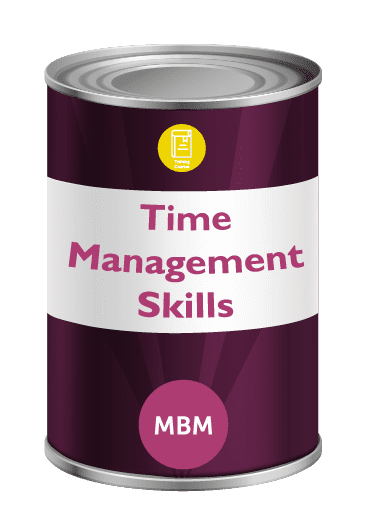Most people have heard that Time Management is a paradox. You cannot manage time because it is a constant.
Time just ticks away and you have no influence to slow it down or speed it up. The only solution to ‘Time Management’ is to shift your mindset from managing time to making conscious choices with the time that you have.
There is a plethora of hints, tips, and advice, to enable you to build a better time management system, make better choices and improve your time management. This piece of advice will not be found anywhere else and comes from our Time Management Training course for UK supplier’s sales and marketing teams and we’ve called it, ‘The Power of Discretionary Time to Solve your Time Management Problem’.
Dave Allen and Brian Tracy, the renowned Time Management expert’s from the States, mention discretionary time in their teachings, and we’d like to go much deeper about how the power of discretionary time can solve your time management problem.
Remember the music?
What is Discretionary Time?
Like the game ‘Tetris’ (Play Tetris online), where different shapes of blocks come down the screen and your objective is to stack them together to avoid any gaps, discretionary time is like those little black/blank squares that are left when the blocks don’t quite fit together. They occur about 8 times a day and you lose them easily in the ‘speed of life’. For examples:
- Waiting at the dentist, the doctor, the post office…
- As a training provider, seeing learners waiting for other learners to arrive.
- In the lift.
- At meetings, waiting for the late arrivals to arrive.
- Sitting in traffic jams.
- Waiting in reception of clients, suppliers, partners…
- Identify one example of your own from earlier today or yesterday.
Whilst you could be forgiven for thinking ‘hmmm, you’ll never sort out my time management with these little black squares’, you are right. Yet, please consider this; If you think that the small things cannot make a difference, try going to sleep with a fly in the room! These little black squares are small gifts that we just need to open and choose what’s inside.

How Do We Use Our Discretionary Time Now?
When someone receives one of these small gifts of time, how do they spend it? Whilst none of us wish to admit it, our default position, when we receive this gift, is to check our phone for emails, messages, Facebook updates, etc. This has become habitual for nearly everyone. This Daily Mail article suggests that we check our phone 214 times per day.
What Could We Do with Our Discretionary Time?
Firstly, to consciously choose what we want to do with those small gifts of time and not simply default to checking our phone. The reason that the Tetris game was so popular is that our brains are hardwired to ‘tidy-up’, according to a Daily Mail report. It is this psychological need that we could apply to our Time Management. Secondly, by knowing how long each small gift of time is likely to be; 1 minute? 5 minutes? 15 minutes? Thirdly, by consciously choosing what we can achieve within these small gifts of time. The best use for these small gifts of time could be to:
Sticky Learning ® is 7 times more effective than 1-day training courses. Plus, you will get a Chain of Evidence proving your Return on Investment. Discover soft skills training that changes behaviours long term.

Assess Our Daily To Do List
The foundation of a good time management system is a daily to do list. This list shows what you need to achieve that day in a prioritised order. By defaulting to checking our daily to do list we can be sure to continue working on what we have chosen to get done. Do you write a daily to do list? This is an essential part of any effective time management system and taught on our Time Management Training.
Assess Our Project List
The project list enables us to focus on the big things and not get lost on the ‘admin’ of our job. By using these small gifts of time to keep ourselves focussed on the big things that we need to achieve, we can ensure that we are making progress towards our KPI’s. Do you have a project list? This is also an essential part of any effective time management system and taught on our Time Management training course
Achieve Our Goals
Antony Robins, Jack Black, and other positive mental coaches teach us that if we want to achieve a goal, we need to constantly live that goal first. Muhammad Ali, the boxer, constantly lived in the moment of believing, ‘I am the greatest’, long before he was. Do you have a goal written down that covers the 3 P’s of goal writing? Personal, Positive and Present.
Solve a Problem
Like most people in business you’ll have problems, or ‘challenges’, as we are taught to see them in the positive. Solving problems is a skill to be learnt, like any other. When you started a puzzle, as a child, you probably looked for the corners or the straight edge pieces. You didn’t start grabbing random pieces of puzzle and seeing if they fit together. What problem solving techniques do you use? We recommend the mind mapping that we teach on our Learning to Learn training course because it will help you use one of the 10 minute small gifts of time to, for example, start getting your head around a new project.
How will Using Your Discretionary Time Solve Your Time Management Problem?
Discretionary time probably accounts for about 60 minutes for each business person each day. Usually made up of:
- 1 x 15 minute gift of time
- 2 x 10 minute gifts of time
- 5 x 5 minute gifts of time
Currently, the choice being made is to check our phones. There are alternatives that are more productive. By using this discretionary time to ‘get ahead’. Beginning the next action on our daily to do list, identifying which project is important, or focussing on what we want to achieve, is all more valuable than falling into the habitual trap of the ‘black hole inbox’.
Next time you have some discretionary time, which will be later today, choose what you want to do with it and see it as a ‘small gift of time’, to be used by you for what you want to achieve, not just as a default to look at your phone.

Action: For even more useful content on time management, check out our ultimate guide on Time Management skills.




